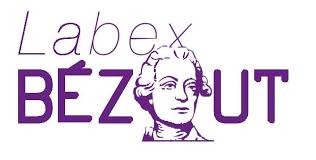PDE/Probability Interactions: Particle Systems, Hyperbolic Conservation Laws
Interactions EDP/Probabilites : systèmes de particules, lois de conservation hyperboliques
14 – 18 October 2019
|
Scientific Committee
Comité scientifique Thierry Bodineau (CMAP Ecole Polytechnique) |
Organizing Committee
Comité d’organisation Pietro Caputo (Università di Roma Tre) |
|
Several fundamental equations from physics describe systems composed of a large number N of interacting particles. These equations play a role in a wide number of fields, such as kinetic theory of gases and plasmas, chemotaxy, po- pulation dynamics, etc. Rigorously justifying the convergence of microscopic models describing the evolution of the N particles to mesoscopic or macroscopic nonlinear models in a restricted phase space is a major goal in applied mathema- tics. The interactions inside the system may be modelled by either deterministic or stochastic dynamics.
This conference, on the interplay between PDEs and probability, and following a previous edition that took place at the CIRM in 2017, will focus on the study of such particle systems, with an emphasis on mean-fields models with singular interactions, such as the Boltzman, Landau and Keller-Segel equations, as well as systems of conservation laws, which arise as scaling limits of asymmetric particle systems under hyperbolic scaling. Our aim is to foster contacts between specialists of the varied areas of probability and PDEs that are connected to these topics, in order to develop new methods and applications. |
Certaines équations fondamentales de la physique décrivent des systèmes composés d’un très grand nombre N de particules en interaction. Ces équations interviennent dans des domaines aussi variés que la théorie cinétique des gaz, des plasmas, le chimiotactisme, les dynamiques de populations, etc. La justification rigoureuse du passage à la limite des modèles microscopiques, décrivant l’évolution des N particules, vers des modèles mésoscopiques ou macroscopiques, nonlinéaires mais dans un espace des phases restreint, est un objectif majeur en mathématiques appliquées. Les interactions au sein des systèmes de particules peuvent être modélisées par des dynamiques déterministes ou aléatoires.
Cette conférence, à l’interface entre EDPs et probabilités, et qui fait suite à une conférence ayant eu lieu en 2017 au CIRM, portera sur l’étude de la convergence de tels systèmes de particules, avec une emphase sur les modèles en champ moyen avec interactions singulières, comme les équations de Boltzman, de Landau et de Keller-Segel, ainsi que les systèmes de lois de conservation, qui peuvent apparaitre comme limite d’échelle de systèmes de particules asymétriques sous un scaling hyperbolique. L’objectif est de mettre en contact des spécialistes des différents domaines des probabilités et des EDPs concernés par ce sujet, afin de développer de nouvelles méthodologies et applications. |
Alexis Vasseur (University of Texas at Austin) Relative entropy applied to the study of stability to discontinuous solutions of conservation laws, subject to large perturbations
Boris Andreianov (Université de Franche-Comté) Flux-constrained conservation laws: modeling, analysis, approximation
Alexandre Boritchev (Université Claude Bernard, Lyon) Adding small viscosity to hyperbolic (stochastic) conservation laws
Raphael Butez (Weizmann Institute of Science) Extremal particles of 2d Coulomb gases with positive background
Laura Caravenna (University of Padova) Exponential Stability of BV Solutions in a Model of Granular flow
Kleber Carrapatoso (Université de Montpellier) Mean-field limit of the Stokes equation around random spheres
Djalil Chafaï (Université Paris-Dauphine) Recent works on the asymptotic analysis of Coulomb gases
Helge Dietert (Université Paris Diderot)
Jean Dolbeault (Université Paris-Dauphine) L^2 Hypocoercivity
Mitia Duerinckx (ENS Lyon et Université Libre de Bruxelles) Corrections to mean-field theory for classical interacting particles
Nicolas Fournier (Sorbonne Université) A toy network of neurons interacting through their dendrites
Cyril Labbé (Université Paris-Dauphine) Cutoff phenomenon for the asymmetric simple exclusion process
Mauro Mariani (National Research University Higher School of Economics, Moscow) Scaling limit of a a kinetic model of interacting diffusions
William Oçafrain (Université Paul Sabatier, Toulouse) Mean-field particle system for the approximation of conditional probability measures
Felix Otto (Max Planck Institute for Mathematics in the Sciences, Leipzig) The matching problem: connections to the Gaussian free field via large- scale linearization of the Monge-Ampere equation
Fraydoun Rezakhanlou (University of California, Berkeley) Homogenizations for Hamilton-Jacobi PDEs and Hamiltonian ODEs
Samir Salem (Université Paul Sabatier, Toulouse) Propagation of chaos for the Boltzmann equation with soft potentials
Marielle Simon (INRIA Lille-Nord Europe) Convergence of a microscopic dynamics to the porous medium equation
Ariane Trescases (CNRS / Université Paul Sabatier, Toulouse)





